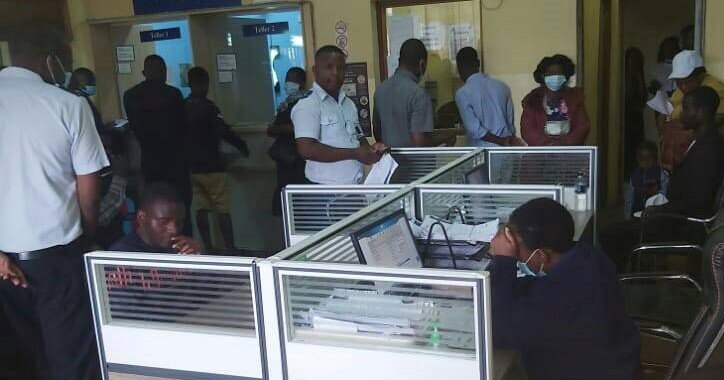
..US$5 million paid, no passport or IDs for Malawians
by The Investigator Magazine
The Passport Lie
When President Lazarus Chakwera told Malawians in 2024 that hackers had crippled the country’s passport printing system, it sounded like a crisis beyond government control. Passports are a lifeline for citizens traveling for business, study, and medical care. To suggest foreign hackers had targeted Malawi seemed plausible, even urgent.
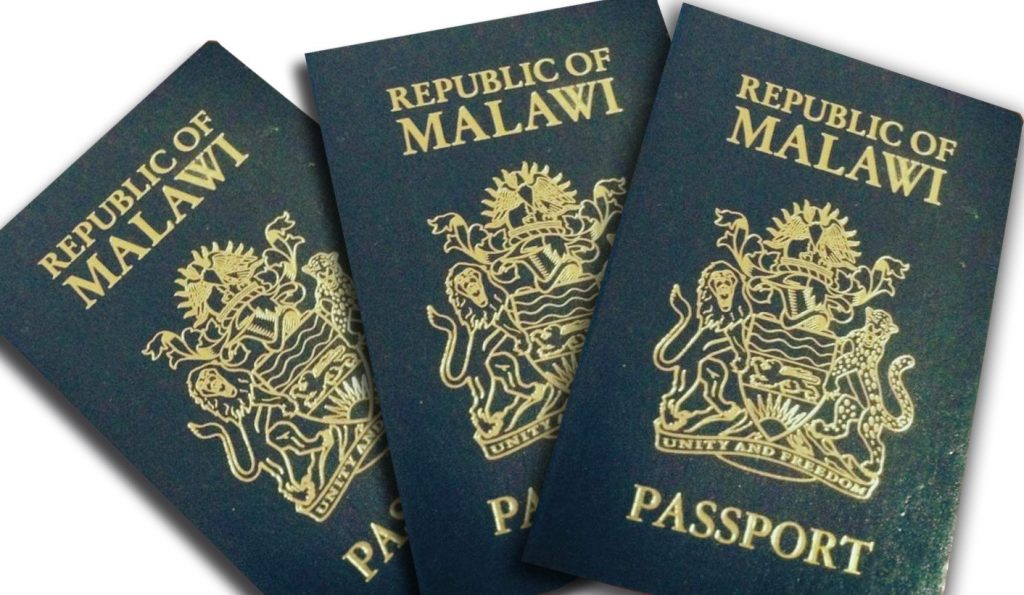
But it was a lie.
The “hack” was a convenient cover story. In reality, insiders at the Ministry of Homeland Security were already engineering a contract for an Indian company : Madras Security Printers. Instead of transparency, the President’s lie became the opening line of a corruption scheme worth over K100 billion.
Homeland Security Minister Ezekiel Ching’oma went public with an announcement that passport printing had resumed. His press conference was triumphant, but short-lived. The Malawi High Commission in London confirmed no new passports were being printed. Immigration officers in Lilongwe told The Investigator Magazine the same thing on Friday, August 15, 2025: no printers had arrived, no passports were rolling off any production line.
Ching’oma, who had rushed to claim credit, was left humiliated. “He was baptised with eggs,” one senior Immigration officer said. “He was made to look like a fool in public.”
At stake are not just passports, but the trust of a nation.
The ID Heist
Before Madras was gifted the passport contract, it slipped back into Malawi through the backdoor of national identity cards.
Business Machines Limited, a local company, had won contracts to produce ID cards. In 2021 and 2022, the UNDP even financed 500,000 ID cards, pushing for them to be produced locally to build capacity. However after the first contract, OPC officials led by Zamba and others bypassed Business Machines Ltd and went to Madras to offer them a contract
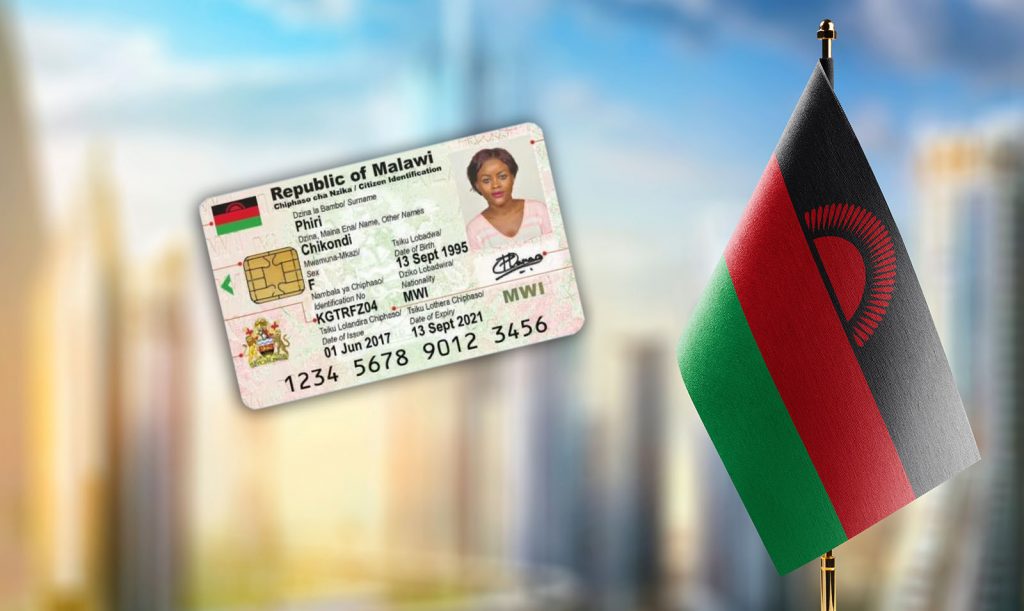
The cost began modestly. Each card was priced at just US$1.06. But by the time State House operatives and Secretary to the President and Cabinet Colleen Zamba had finished inflating the contract, the price had soared to US$3.99 per card.
That simple arithmetic tells a shocking story. Nine million cards multiplied by an extra US$3 each translates into tens of millions of dollars looted. “The expectation was that everyone in the chain would get their cut,” one official explained.
Procurement documents seen by The Investigator Magazine confirm the irregularities. The restricted tender process was manipulated. Madras was allowed to adjust its documents during evaluation. The bank guarantee required for bidders was US$750,000, Madras only submitted US$200,000. Instead of being disqualified, they were miraculously allowed to amend.
“It was a miracle contract,” one procurement insider quipped. “The only miracle was how fast rules disappeared.”
Inside the OPC Pressure Machine
If Madras had stopped at ID cards, perhaps the scandal would have remained hidden. But the real prize was passports, a lucrative contract worth tens of millions of dollars, linked to state security.
The Anti-Corruption Bureau (ACB) did intervene. Acting Director Hilary Chilombe halted the US$35 million Madras ID contract, citing inflated costs and the dubious restricted tender. For a moment, it seemed accountability had prevailed.
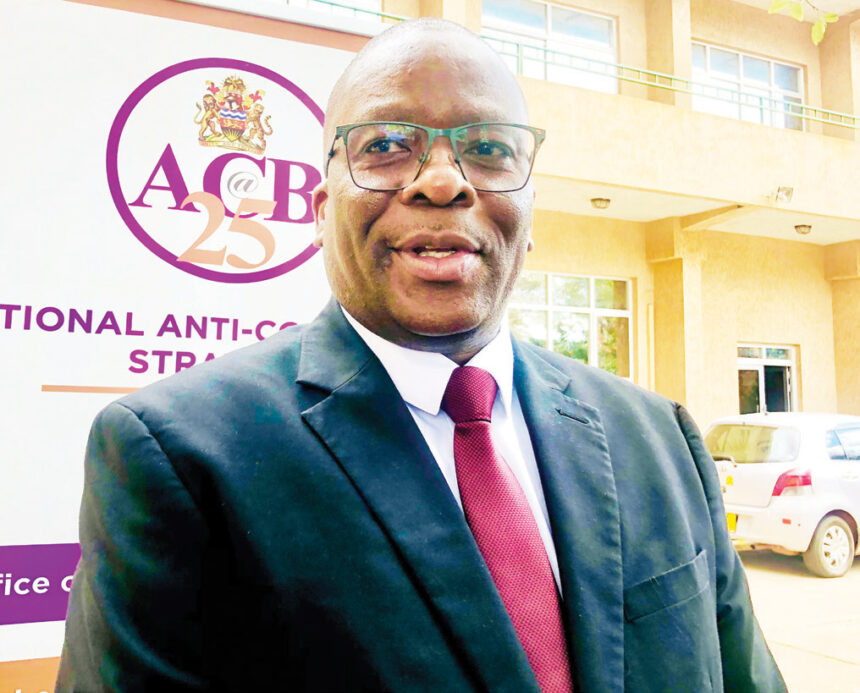
But OPC and State House had other ideas.
Sources at OPC told The Investigator Magazine that SPC Colleen Zamba and State House operatives directly pressured the ACB. “They told Chilombe that his confirmation as ACB boss depended on clearing Madras,” one source said.
The bypassing of the Attorney General , Malawi’s chief legal adviser, further revealed the political muscle behind Madras. “It was no longer procurement; it was a feeding scheme,” a legal officer close to the matter explained.
Every step bore the fingerprints of manipulation. Madras, despite facing criminal prosecution in Kenya for selling fake visa stamps, was elevated to a position of privilege in Malawi. Officials looked the other way, as long as the cash flowed back into the pockets of political handlers.
MCP: a Government of Scandals
The Madras scandal does not stand alone. It is merely the latest episode in a long series of corruption sagas under the MCP administration.
From the theft of Covid-19 funds, to the farcical Bridgin Foundation, to fertiliser purchased from butcheries and pharmacies, to ghost sheikhs who promised K1.5 trillion in fuel and fertiliser, the pattern is clear. The government of Lazarus Chakwera has become a machine designed to siphon public resources.
They ended Zuneth Sattar’s cases. They buried Batatawala’s prosecutions. They turned the ACB into a tool of negotiation. The Director of Public Prosecutions began asking victims to drop charges. The Attorney General offered amnesty to thieves.
Now, with elections just 30 days away, contracts are being rushed through. Money is being cashed out. And Malawians are left with no passports, no IDs, and no hope.
“This is a government of theft, by theft, and for thieves,” one Immigration officer told us bitterly. “They even created a ghost Sheikh. They even lied about hackers. Nothing is too low for them.”
Madras, the Miracle Dealer of Africa
The story of Madras Security Printers is not uniquely Malawian. It is a well-rehearsed script, tested and perfected across Africa, where desperate governments, corrupt ruling elites, and weak institutions provide fertile ground.
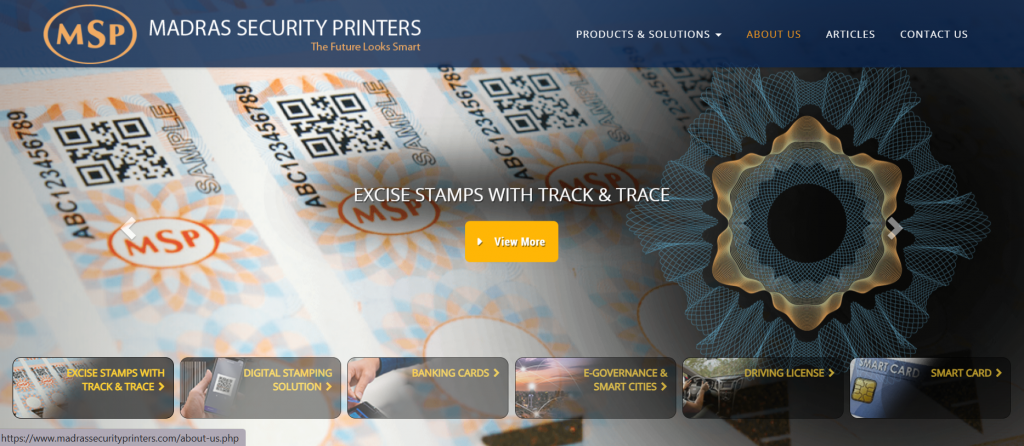
Kenya: The Ghost Stamps Scandal
In Nairobi, Madras is a name that evokes scandal. Court documents reviewed by The Investigator Magazine show that Madras faced criminal prosecution for supplying fake visa stamps to the Kenyan Immigration Department. The so-called “security stamps” turned out to be little more than elaborate counterfeits. They compromised Kenya’s border control and were linked to networks of illegal migration and fraud.
The case was so serious that senior Kenyan officials were forced out. Madras, however, never saw the inside of a jail. Instead, like a slippery cat, it landed on its feet in another market — Uganda, Zambia, then Malawi.
Uganda: Ballot Papers and Doubts
In Uganda, Madras courted controversy when it won contracts to print ballot papers and national documents. Opposition parties cried foul, accusing the company of being used as a tool to rig elections. “They were not just printing ballots,” one Ugandan journalist told us. “They were printing Museveni’s victory.”
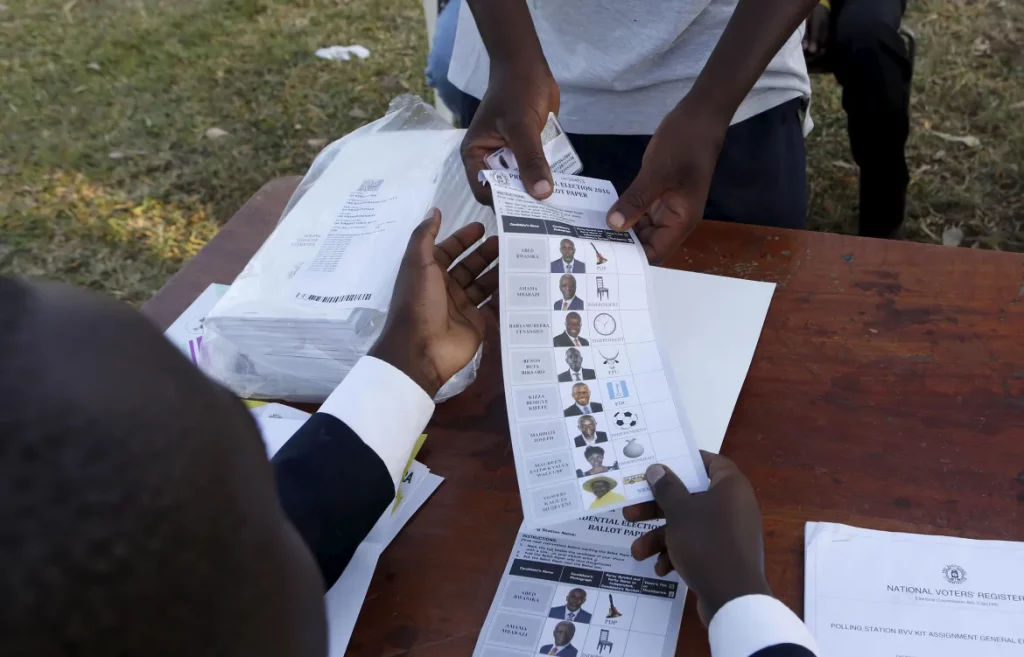
Despite the noise, Madras survived. The money was too good, and the political patrons too powerful.
India: A Company Born in Shadows
Even in its homeland, India, Madras has had its brushes with regulators. Reports from Chennai indicate tax probes and questions over how the company managed to repeatedly land sensitive government printing contracts despite poor track records and complaints of overpricing.
One Indian journalist summed it up bluntly: “Madras has never been about technology; it has always been about contacts.”
Malawi: The New Feeding Trough
Now, the company has found its sweetest deal in Malawi. From being once chased out for poor service during an earlier contract with the Malawi Revenue Authority (MRA), Madras has returned, this time shielded by the highest offices in the land the Office of the President and Cabinet, the State House, and the Ministry of Homeland Security.
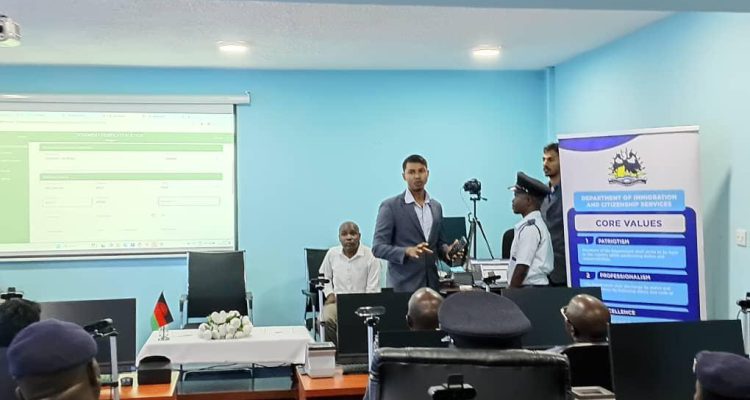
Its fingerprints are now on both the ID card and passport systems. Despite not delivering printers, despite costing taxpayers nearly quadruple the original price, despite facing criminal questions elsewhere, Madras is untouchable in Malawi.
“They are not here for service delivery,” said one procurement officer. “They are here to milk. And our leaders are opening the gates for them.”
The Miracle Business Model
Madras has a simple formula:
1. Enter a country in crisis — often when ID cards, passports, or ballots are in urgent demand.
2. Offer a low-ball bid to appear competitive.
3. Rely on political fixers in State Houses or ministries to change procurement rules midway.
4. Inflate costs drastically once the contract is secured.
5. Share the spoils with politicians and senior officials.
6. Disappear when scandals erupt only to resurface in another country.
It is a miracle business model. Not of efficiency, not of innovation, but of corruption and survival.
The Cost to Citizens
For Malawians, the miracle has been cruel. Passports are unavailable. ID cards are scarce commodity. Billions of kwachas have evaporated into offshore accounts. Citizens queue at Immigration offices, only to be told: “We are collecting biometrics; come later.”
And yet, Madras cashes in.
Editor’s View: Next Government should cancel these contracts
The MCP administration did not stumble into Madras by accident. They sought them out, as they have sought every shady dealer, from Bridgin Foundation’s fake billions, to ghost sheikhs in Dubai, to butchers selling fertiliser. Malawi has become a playground for companies like Madras because its leaders have chosen eating over serving. This is no longer just about procurement scandals. It is about national security, sovereignty, and dignity.
The miracle charms of Madras have worked again not because they are clever, but because Malawi’s leaders are willing accomplices. The next government must not only cancel these contracts, but blacklist Madras from ever setting foot in the country again.
Anything less would be another betrayal.


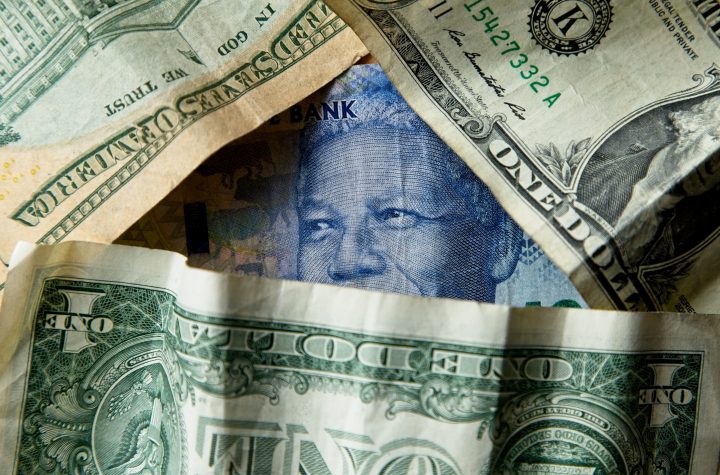
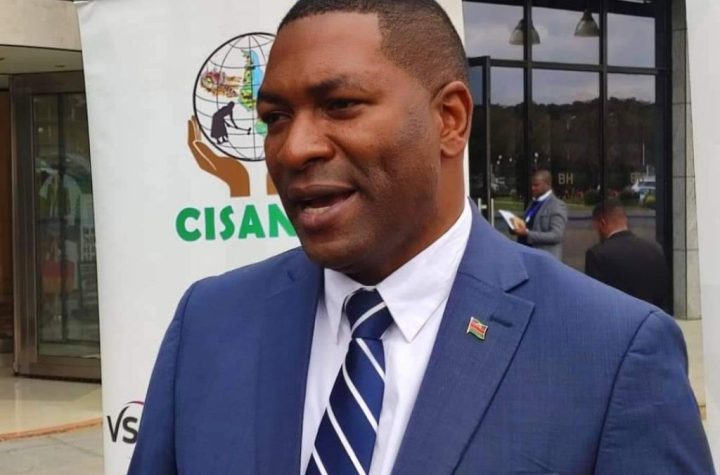

More Stories
West, not east gives Malawi more
Bank cartels fleece Malawi forex
Police, ACB jump fence in Failed Raid on Ex-Minister Kawale;